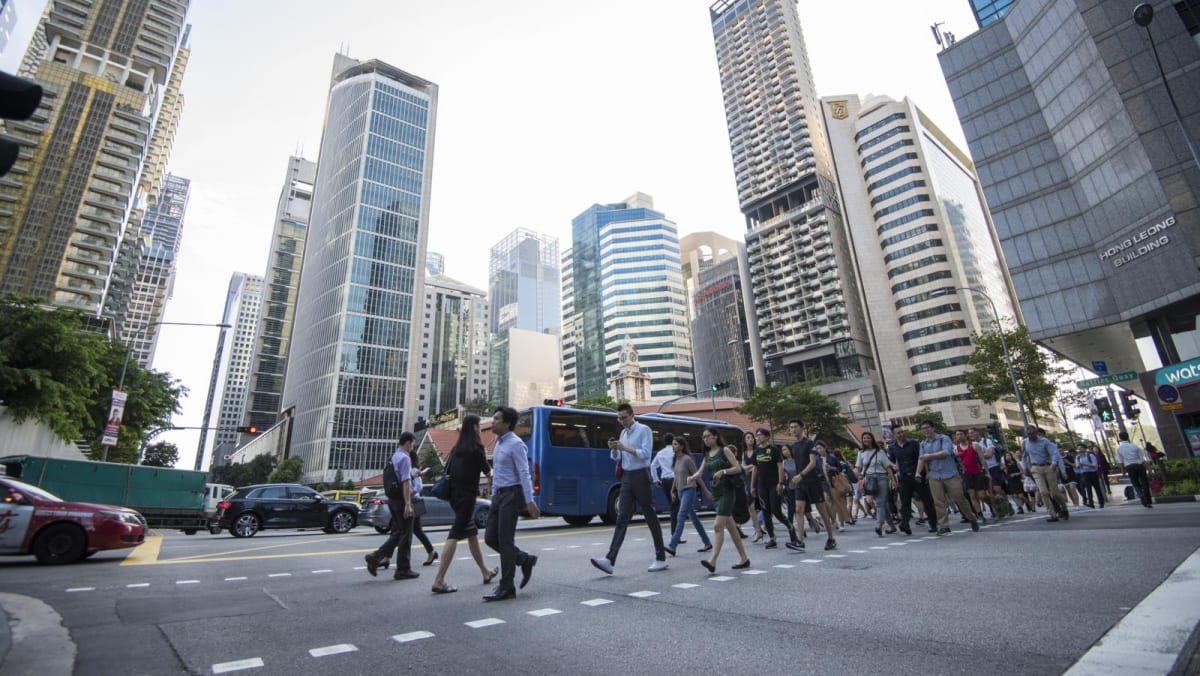LONGER-TERM GROWTH IMPACT
Beyond near-term repercussions, a bigger concern is the risk of a recession in the US and a fall in demand from the world’s biggest economy, industry players said.
“Predictability and certainty are fundamental to cross-border commerce. Both are now absent,” said Mr Kok. “Hence, there is great uncertainty about the actual economic effects of this tariff policy as it will take time for it to play out, but slower growth is expected.”
The fresh slew of tariffs can also fan inflation and slow down global growth, which will in turn affect consumer sentiment and business spending across multiple industries.
Even the technology industry will not be insulated, according to SGTech’s chair Nicholas Lee.
“We may also see businesses take a more cautious approach by either delaying investment decisions or reallocating budgets to cushion against higher operational costs,” he said.
“This could result in trimmed IT budgets and reduced spending on digital transformation, which would impact local tech companies.”
But not all is doom and gloom, said Mr Lee, citing “opportunities for non-US firms to step in as alternative providers”.
“In fact, some large regional enterprises already facing rising costs from US vendors are considering switching providers – this could accelerate that shift,” he told CNA.
Moving forward, businesses “will have to re-examine their reliance on US as a market”, and consider opportunities in the region and areas where Singapore has trade agreements, said Mr Kok.
Other business leaders urged Singapore businesses to double down on workforce upskilling and digitalisation, while remaining nimble in adapting to an uncertain future.
